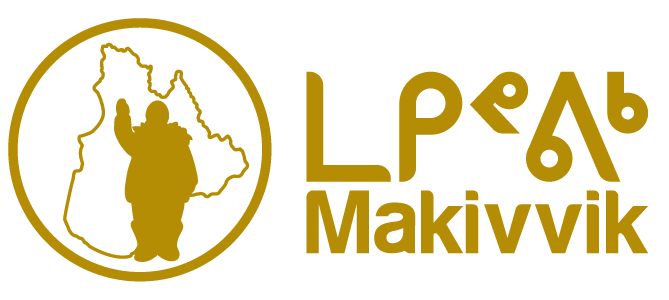The Nunavik Economic Summit, an event aimed at catalyzing economic development in the region, was hosted by Makivvik’s Department of Economic Development in Kuujjuaq on March 20 and 21, 2024. The event proved to be a cornerstone for networking and discussions on ongoing and potential economic initiatives crucial for the region’s prosperity.
Makivvik’s Vice President responsible for Economic Development, Andy Moorhouse, said this initiative was an Economic Development priority, to ensure Inuit businesses have access to the programs and services currently available for Nunavimmiut.
“We will continue to be promoting the businesses to ensure we develop our economic environment in a way that would be supportive for anyone to consider that having a business would be as secure as having a government job,” he said.
A highlight of the summit was its inclusivity, with the proceedings simultaneously translated in the hall and streamed live on Makivvik’s Facebook page, allowing interested parties to listen in. With a thematic focus on “Building Blocks of Nunavik,” the summit provided a platform for stakeholders to explore crucial economic development support programs and resources available to those operating within our region. Representatives from organizations like Canadian North, Local Landholding Corporations, representatives from the Nunavik mining industry, government organizations, and the Federation of Quebec Chambers of Commerce were present, underlining the significance of collective action in harnessing Nunavik’s economic potential.

Jason Annahatak, co-director of Makivvik’s Economic Development Department, took the lead in both preparation and planning of the summit, as well as acting as its emcee, and Makivvik President Pita Aatami was on hand to welcome the delegates, stating that the region is open for business, so long as there is mutual respect.
“We have a lot of potential, but I’ve made it very clear that we’re not a playground for mining companies,” he said. “This is our home. This is where we’ve lived for thousands of years, and our priority is to get food off the land. I’m not against development, I just want people to understand that if you want to work up here, work with the people, respect them. We will work with you and respect you in return.”

His address emphasized the region’s potential beyond its mineral wealth, advocating for respectful collaboration as important for sustainable development.
The summit’s agenda was multifaceted, touching on a range of topics from youth entrepreneurship to procurement policies. Of note was the proposed Nunavik Inuit Procurement Policy, outlined by Makivvik’s Vice President, Responsible for Economic Development, Andy Moorhouse. This policy seeks to empower Inuit businesses by granting them exclusive access to contracts, paving the way for long-term economic self-reliance. This launch of developing the Nunavik Inuit Procurement Policy was the start of ongoing consultations, with the goal of bringing a finalized document to Nunavimmiut for approval.
Hydro Quebec’s Indigenous Procurement Strategy, presented by Camille Laberge, echoed the importance of forging partnerships between corporations and indigenous communities, fitting in with the summit’s collaborative feeling.

Youth voices resonated throughout the summit, with presentations from organizations like YES Montreal and YES Nunavik shedding light on the pivotal role of entrepreneurship in driving economic vitality. Qarjuit Youth Council President Janice Parsons emphasized the need for inclusive policies to ensure equitable economic opportunities for all.
In conclusion, the Nunavik Investment Corporation’s Annual General Meeting was presented by Makivvik’s Jason Annahatak. The AGM served as a testament to the event’s overarching theme of collaboration and forward momentum.
As the Nunavik Economic Summit ended, themes of collaboration and determination were heard, along with a desire for a new era of economic resilience and community empowerment in Nunavik. With partnerships forged and visions shared, the stage is set for a future where economic prosperity is connected to cultural preservation and environmental stewardship.




